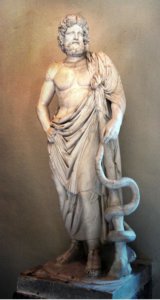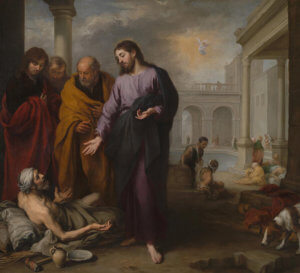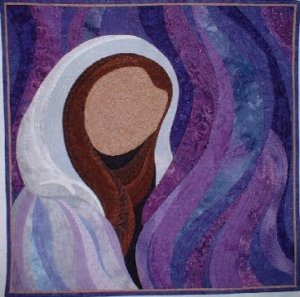
1984
 Where were you 38 years ago? Just to do the math for us quickly, that was 1984. In 1984, Ronald Reagan had just won a second term over Walter Mondale, the AIDS virus was discovered and made public, Indian Prime Minister Indira Gandhi was assassinated, and the threat of nuclear war hung over the world. Interesting for me as a soon-to-be mother of the bride AND mother of the groom who were not yet born in 1984, 1984 was big year for weddings, in part because of then President Reagan’s public support of conservative leaders and their efforts to protect “traditional family values.” George Orwell’s 1949 dystopian social science fiction novel 1984 received a lot of new attention that year because of its title, although its focus on the role of truth and facts within politics, perpetual war, and government surveillance are relevant discussions today. 38 years ago, lots of things were different — in the world, on Aquidneck Island, in Newport. What if time had stood still for you back in 1984?
Where were you 38 years ago? Just to do the math for us quickly, that was 1984. In 1984, Ronald Reagan had just won a second term over Walter Mondale, the AIDS virus was discovered and made public, Indian Prime Minister Indira Gandhi was assassinated, and the threat of nuclear war hung over the world. Interesting for me as a soon-to-be mother of the bride AND mother of the groom who were not yet born in 1984, 1984 was big year for weddings, in part because of then President Reagan’s public support of conservative leaders and their efforts to protect “traditional family values.” George Orwell’s 1949 dystopian social science fiction novel 1984 received a lot of new attention that year because of its title, although its focus on the role of truth and facts within politics, perpetual war, and government surveillance are relevant discussions today. 38 years ago, lots of things were different — in the world, on Aquidneck Island, in Newport. What if time had stood still for you back in 1984?
Bethsaida
In John’s gospel this morning, we meet up with Jesus at the pools of Bethsaida. Bethsaida means house of kindness, or house of help, and is where the city of Bethesda, Maryland gets its name. It’s interesting that John’s gospel interrupts the story to tell us that the Hebrew name for the pools is Beth-zatha. Maybe he wants to reassure us that the pools are connected somehow with the Jews and with Jesus. Or maybe he’s signaling that the pools are outside our culture and experience to see what insights we can draw from their pagan use.

The Pools of Bethsaida were actually an ancient asclepeion, a place of healing dedicated to the Greek god of medicine, Asclepius. In art and sculpture, we recognize Asclepius by his staff with a snake wrapped around it, the traditional symbol of medicine. Healing at an ancient asclepeion emphasized therapy through the natural environment, so they were carefully located near springs, where water bubbled up naturally through the ground, or in caves, where water dripped down through rocks. Care for the patient’s psychological and emotional states was key, as they activated the patient’s innate healing mechanisms, promoting recovery.
At these pools — this asclepeion — many people who are unwell are lying in the sheltered areas around the pools. The word used for their general sickness is astheneo, meaning powerless or weak in any way, whether physical, emotional, political, or economic. We also get a list of some of the specific illnesses some have, including blindness, lameness, and paralysis — they couldn’t see a way forward, or if they could, they just couldn’t make themselves move to get there.
They may have also had physical impairments, but the setting at the spa, with its focus on emotional and spiritual health, invites us to wonder whether they were just stuck in their old way of interacting with each other and the world. John’s gospel doesn’t tell us the specific nature of the illness of the man Jesus speaks to — just that it has persisted for 38 years. We have to wonder — how often did the man come to the pool? Where did he go at night? How did he return each day? If he just stayed there at the pools, how did he get food and care for himself?
Do You Want to be Made Well?

Maybe Jesus wondered these things too. Do you want to be made well? Jesus asks. It’s a fair question to ask at an asclepeion. The sick man answers, Sir, I have no one to put me into the pool when the water is stirred up; and while I am making my way, someone else steps down ahead of me. At a natural spring like the Pools of Bethsaida, water bubbles up from the ground from time to time, and people believed that the first person to get into the pool when that happened would be healed. Brushing by this excuse, Jesus says to the man, Stand up, take your mat and walk. At once the man was made well, and he took up his mat and began to walk.
I visited the pools often while I lived in Jerusalem, and the pools are at a low spot in the Old City. Not only did the man pick up his mat and walk, it would have been uphill to get back into the city to rejoin the community. This is not one of those times when the gospel remembers that Jesus said your faith has made you well. With the specific details we get in the story — the asclepeion’s focus on spiritual and emotional health and the evidence of the man’s habitual presence at the pools with no positive change after 38 years — John’s gospel practically jumps up and down to get us to wonder what did change in that moment.
How do we get stuck in our lives? Maybe it’s nostalgia — maybe we just really loved 1984 because it was a happy time for us. Or are we afraid we won’t be able to keep up? Do we think we won’t have enough — people, money, young families, space, or food? Do we doubt ourselves? Do we think that we ourselves aren’t enough — that we can’t do it on our own?
Power of Community
 Lydia, the seller of purple cloth in our reading from Acts, is my absolute favorite businesswoman/Christian laywoman combo in scripture, as well as a great reassurance of the power of community. Lydia is the head of a whole household that functioned in first century Asia Minor — modern Turkey — as a significant commercial enterprise.
Lydia, the seller of purple cloth in our reading from Acts, is my absolute favorite businesswoman/Christian laywoman combo in scripture, as well as a great reassurance of the power of community. Lydia is the head of a whole household that functioned in first century Asia Minor — modern Turkey — as a significant commercial enterprise.
I especially love the narrative voice of the Book of Acts. It’s in the first person plural — WE. Through that, WE are invited into the action. WE can see ourselves in that context, and WE participate in the gospel message. WE can see what it means to join in, take action, change, and move forward with our community. Preacher Sarah S. Scherschligt writes, Lydia is converted. She changes. Then she lets the gospel conversion extend to her household. Then her household welcomes others. A whole church is formed.
With our grants from the Rhode Island Foundation for Soup’s On and the McBean Foundation to repair and protect the chapel windows and re-caulk and re-seal the roof, we are un-stuck. We can move forward as a community to embrace a new reality in God. This is a time for us to pause — from our list-making, our focus on our needs, our fears of scarcity, and our worries that we don’t have enough — or that we ourselves are not enough. Now is the time for abounding joy, deep gratitude, and massive celebration. We have been made well in Jesus. God has done marvelous things. Amen
